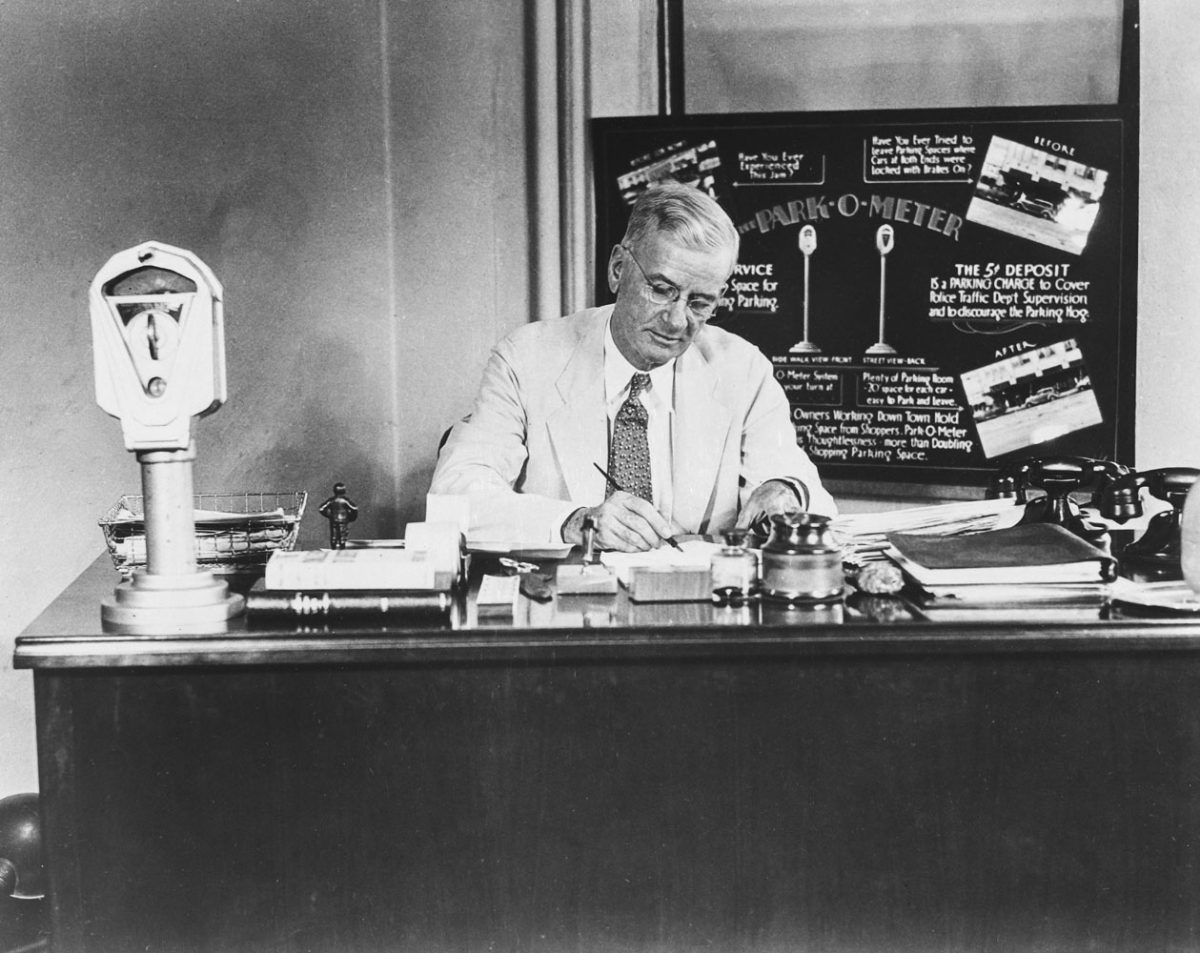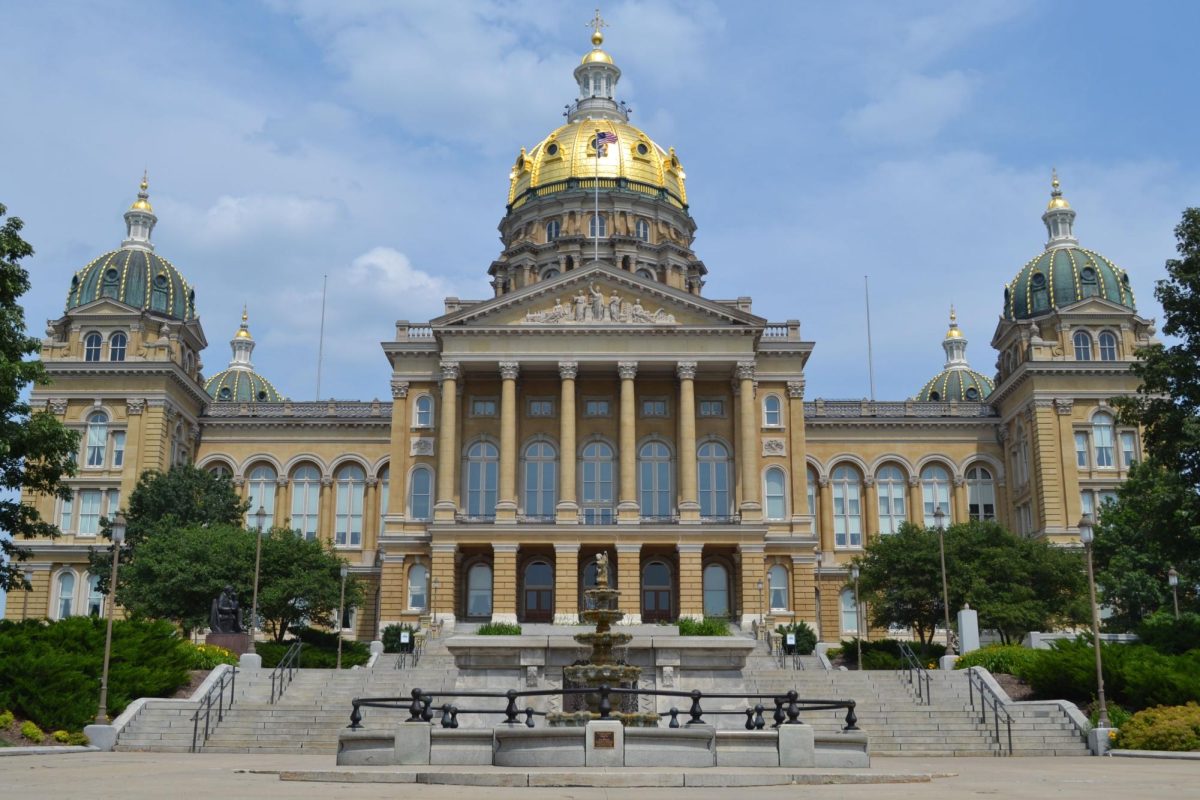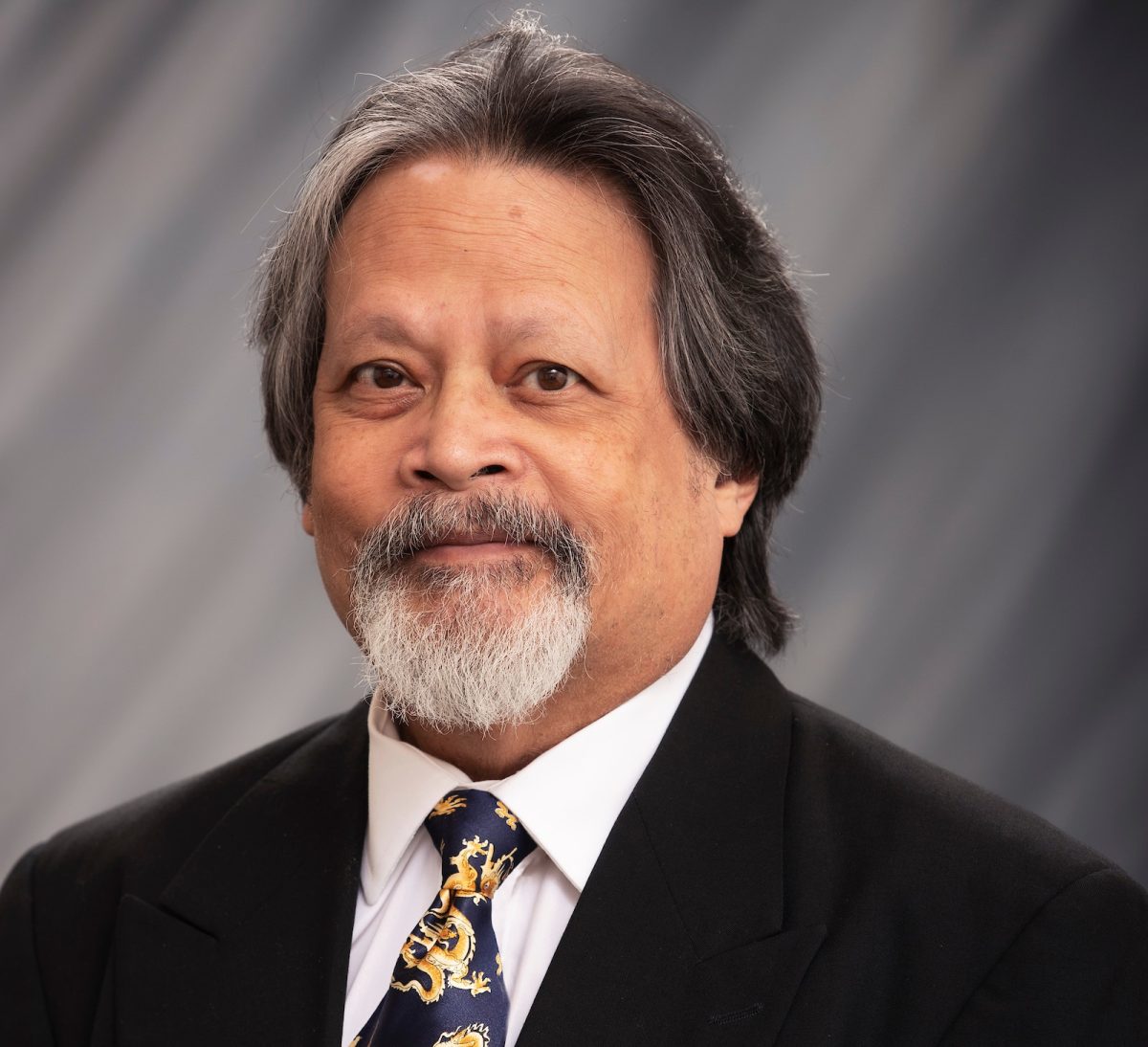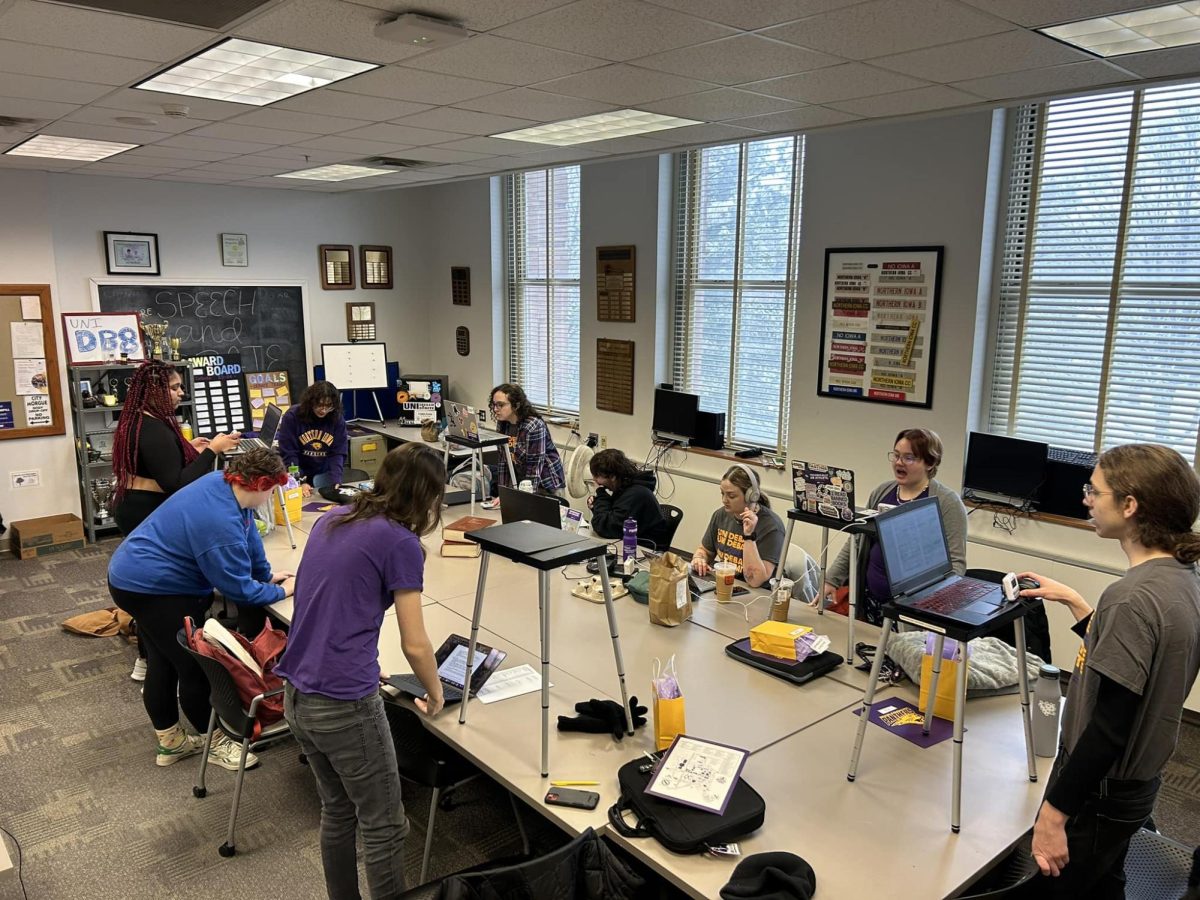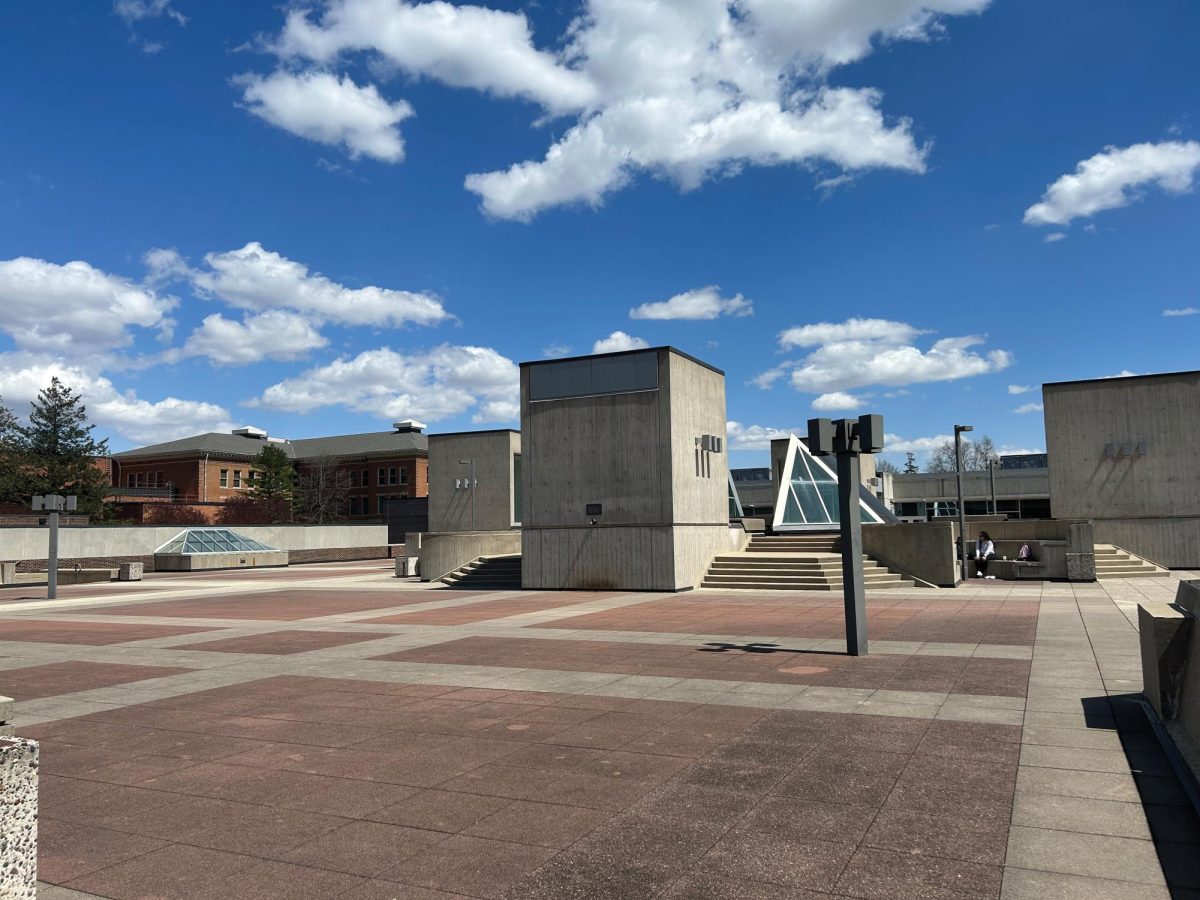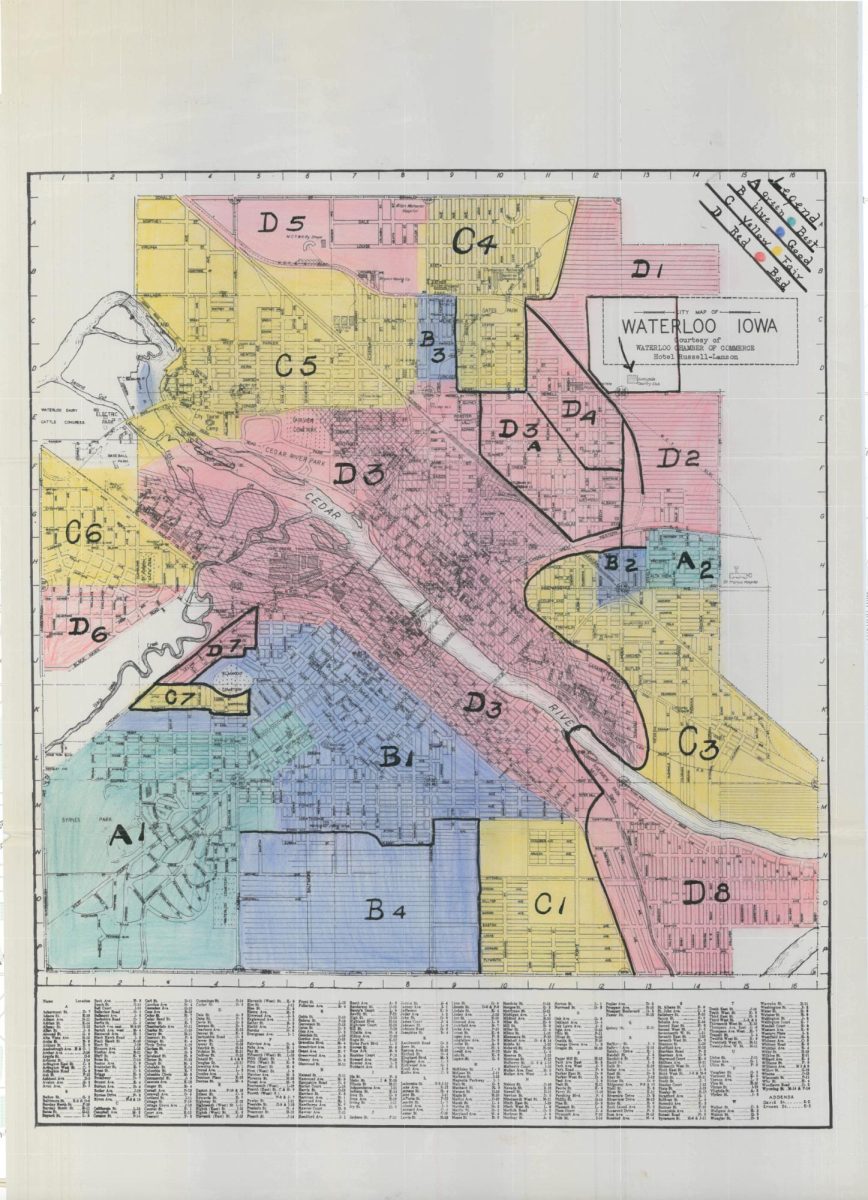A century ago, a UNI alum and former editor of UNI’s student newspaper entered a congressional hearing room, met the skeptical eyes of the senators seated around the table, and blew the lid off the Teapot Dome affair.
The man was Carl Magee, and his exposure of the corruption scandal — the biggest in the nation’s history up to that point — was just one of his many claims to fame.
He began his career at the University of Northern Iowa — then known as Iowa State Normal School — serving as editor of the student paper, then called the Normal Eyte because students called themselves Normalites.
Throughout the 1893-94 school year, Magee crusaded for change, attacking the condition of the campus of the poorly-funded school and demanding better maintenance of the wooden sidewalks in front of the nearby businesses.
He fell in love, too, with a fellow student, Grace Griffin. Years later, when they were married and had three children, he would remember strolling the campus with her under elm trees and drifting on the Cedar River while she played the guitar.
After graduation, Magee was an educator, serving as Carroll County superintendent at age 23.
But Iowa’s winters took a toll on Grace’s health, and Carl wanted new challenges. He studied law, and the family moved to Tulsa, where he hung out his shingle as a lawyer.
As oil strikes turned Tulsa into the “Oil Capital of the World,” Magee succeeded in business and the legal profession. He also led an anti-corruption movement that got the mayor and police chief indicted, and he championed a campaign to build the water system that still supplies Tulsa to this day.
Grace developed tuberculosis, though, so the family moved to Albuquerque, where the desert climate offered the best chance for recovery. There Magee pursued his long-held dream of publishing a “truth-telling” newspaper.
He bought the Albuquerque Journal and began attacking New Mexico’s widespread corruption.
That threw him into conflict with Albert Fall, the U.S. senator who ran the Republican political machine. Their feud continued after Fall became U.S. secretary of the interior. In that role, he cut secret deals to allow two oil tycoons to drill in the Navy’s Teapot Dome and Elk Hills petroleum reserves.
As the journal raised questions about the arrangements, Fall lashed out, forcing Magee to sell the journal. The editor responded by launching a new newspaper, which would evolve into the Pulitzer Prize-winning Albuquerque Tribune.
Eventually, Magee was called to Washington to share what he had learned about Teapot Dome.
His testimony before the Senate Public Lands Committee in late 1923 and early 1924 turned a humdrum political controversy into a scandal that rocked America.
Investigators would uncover some $400,000 in payments the oil millionaires made to the interior secretary, equivalent to about $6.5 million today. Fall was convicted of bribery and sent to prison.
That wasn’t the end of Magee’s story, though.
A vindictive Republican judge tried him on trumped-up charges of libel and contempt, and Magee escaped imprisonment thanks only to gubernatorial pardons.
Later that same judge met Magee in a hotel lobby and attacked him. Sprawled on the floor, the editor grabbed a gun and shot his assailant in the arm. But the gunfire also killed a bystander.
Magee was charged with murder but acquitted.
Eventually, Magee sold his paper and became editor of the Oklahoma News. In that role, he was recruited by the Chamber of Commerce to try to solve Oklahoma City’s downtown parking congestion.
The editor had an idea. He invented the parking meter and patented it. Millions of his Park-O-Meters would be sold around the world.
Throughout his amazing career, Magee remarked often on the importance of his time at the Iowa State Normal School. That was especially true when he spoke at its 50th anniversary, telling the crowd how he was “profoundly influenced” by the institution that would become UNI.
Editor’s Note: Jack McElroy’s biography of Carl Magee – Citizen Carl: The Editor Who Cracked Teapot Dome, Shot a Judge and Invented the Parking Meter – was published recently by the University of New Mexico Press.

